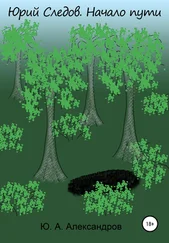416. Donchin E., Callaway E., Cooper R., Desmedt J.E., Goff W.R.., Hillyard S.A., Sutton S. Publication criteria for studies of evoked potentials (EP) in man: Report of a Committe //Attention, voluntary contractions and event-related cerebral potentials. Basel: Karger. 1977. P. 1.
417. Donchin E., Isreal J.B. Event-relatrd potentials and psychological theory / /Progress in brain research. Amsterdam: Elsevier. 1980. V. 54: Motivation, motor and sesory processes of the brain: electrical potentials, behavior and clinical use. P. 697.
418. Doty R.W. Electrical stimulation of the brain in behavioral context // Ann.Rev.Psychol. 1969. V. 20. P. 289.
419. Drucker-Colin R., Merchant-Nancy H. Evolution of concepts of Mechanisms of Sleep//Pharmacology of Sleep. Handbook Exper.Pharm. 1995. V. 116. P.I
420. Dudai Y., Amari S. I., Bienestock E., Dehaene S., Fuster J., Goddard G. V., Konishi M., Menzel R., Mishkin M., Muller C. M., Rolls E. Т ., Schwegler H. H., von der Malsburg C. On neuronal assemblies and memories. Group report //The Neural and Molecular Bases of Learning. N.Y.: John WileySons. 1987. P. 399.
421. Duncan C.R. The retroactive effect of ECS on learning // Journ.Comp.Physiol.Psychol. 1949. V. 44. P. 32.
422. Eccles J.C. An instruction-selection theory of learning in the cerebellar cortex//Brain Res. 1977. V. 127. P. 327.
423. Eccles J.C. Evolution of consciousness. Proc. Natl. Acad. Sci. USA 1992. V 89. P. 7320.
424. Eckhorn R., Bauer R., Jordan W., Brosch M., Kruse W., Munk M., Reitboek H. Coherent oscillations: a mechanism of feature linking in the visual cortex? //Biol.Cybern. 1988. V. 60. P. 121.
425. Edelman G.M. Neural Darwinism: The theory of neuronal group selection. New York, Basic, 1987.
426. Edelman G.M. The remembered present. A biological theory of consciousness. N.Y.: Basics Books. 1989. 346 p.
427. Elbert Т ., Pantev Т ., Wienbruch Т ., Rockstroh ., Taub E. Increased cortical representation of the fingers of the left hand in string players //Science. 1995. V. 270. P. 305.
428. EngelA.K., KreiterA.K., Koenig P., Singer W. Synchronization of oscillatory neuronal responses between striate and extrastriate visual cortical areas of the cat//Proc.Natl.Acad.Sci.USA. 1991. V. 88. P. 6048.
429. Evarts E.V. Relation of cell size to effect of sleep in pyramidal tract neurons //Progr.Brain Res. Sleep mechanisms. 1965. V. 18. P. 81.
430. Event-Related Brain Research, Amsterdam: Elsevier. 1991
431. Eysenck H. The measurement of emotion: psychological parameters and methods //Emotions: Their parameters and measure. N.Y.: Raven Press. 1975. P.439.
432. Frith C. Consciousness is for other people //Behav.Brain Sci. 1995. V. 18. № 4. P. 682.
433. Froehlich F.W. Die Empfindungszeit: Ein Beitrag zur Lehre von der Zeit-Raum und Bewegungsempfindung. Jena. 1929.
434. Fuster J.M. The prefrontal cortex, mediator of cross-temporal contingencies //Hum. Neurobiol. 1985. № 4. P. 169.
435. Galin D. Lateral specialization and psychiatric issues: speculations on development and the evolution of consciousness //Evolution and Lateralization of the brain. Annals New York Acad. Sci. 1977. V. 299. P. 397.
436. Gazzaniga M.S., LeDoux J.E. The integrated mind. 1978. N.Y. – London: Plenum Press. 168 p.
437. Geissler H.G. Foundation of quantized processing//Psychophysical explorations of mental structures. Toronto: Hogrefe Huber Publ. 1990. P. 303.
438. Gerard R.W. The material basis of memory //Journ. Verb. Learn., Verb. Behav. 1963. V. 2. P. 22.
439. Gevins A. Prefrontal and parietal networks of working memory function imaged with 124-channel EEG MRI //Abstr. Xth Intern. Congr. of electromyography and din. neurophysiol. Kyoto, Japan. Electroenceph. din. Neurophysiol. 1995. V. 97. N4. P. 50.
440. Gibbs M.E. ,Ng K.T. Psychobiology of memory: towards a model of memory formation//Biobehav. Res. 1977. V. l.P. 113.
441. Godefroid J. Les chemins de la psychologie. Liege-Bruxelles: Pierre Mardaga. 1988.
442. Goldstein K. The organism. N.Y. 1933.
443. Gottlieb G. Development of species identification in ducklings. IV. Change in species specific perception caused by auditory deprivation // Journ.Comp.Physiol. 1978. V. 92. N2. P. 375.
444. Gottlieb G.L., Corcos D.M., Jaric S. Practice improves even the simplest movements//Exp. Brain. Res. 1988. V. 73. P. 436.
445. Gould J.L. The biology of learning //Ann.Rev.Psychol. 1986. V. 37. P. 163.
446. Gray C.M., Singer W. Stimulus-spesific neuronal oscillatons in orientation columns of cat visual cortex //Proc. natn. Acad. Sci. U.S.A. 1989. V. 86. P.1698.
447. Gray J.A. The contents of consciousness: A neuropsychological conjecture //Behav.Brain Sci. 1995. V. 4. P. 659.
448. Grechenko T.N. Active memory: neurophysiological researching // Journ.Rus.East European Psychology. Sept./Oct. 1993. V. 31. P. 55.
449. Harlow H.F. The formation of learning sets //Psychol. Rev. 1949. V. 56. P. 1.
450. Harrison Y., Horn J.A. Should We be Taking More Sleep? //Sleep. 1995. V. 18. № 10. P. 901.
451. Hartline H.K., Ratliff F. Inhibitory interactions in the Retina ofLimulus // Handbook of Sensory Physiology. Berl.: Springer. 1972. v.7/2. P. 381.
452. Hartmann E. The functions of sleep. New Haven: Yale Univ.Press. 1973.
453. Hebb D.O. The organization of behavior. N.Y.: John Wiley and Son. 1949. P. 547.
454. Heisenberg M. Voluntariness (Willkurfahigkeit) and the general organization of behavior //Flexibility and constraint in behavioral systems. England.’ John Wiley Sons Ltd. 1994. P. 147.
455. Heit G., Smith M.E., Halgren E. Neural encoding of individual words and faces by the human hippocampus and amygdala//Nature. 1988. V. 333. P.773.
456. Heller W. Neuropsychological mechanisms of individual differences in emotion, personality and arousal //Neuropsychology. 1993. V. 7. № 4. P. 476.
457. Hernandez-Peon R., Scherrer H. "Habituation" to acoustic stimuli in cochlear nucleus//Fed.Proc. 1955. V. 14. P. 71.
458. Hesslow G. Will neuroscience explain consciusness? //Journ. Theoretical Biology. 1994. V.I 71.N1. P. 29.
459. Hick W.E. On the rate of gain of information //Quart. Journ. Exp. Psychol. 1952. V. 4. P. 11.
460. Holender D. Semantic activation without conscious identification in dichotic listening, parafoveal vision, and visual masking: a survey and appraisal //Behav. and Brain Sci. 1986. V. 9. N1. P. 1.
461. Hughes J.R. A review of the auditory system and its evoked potentials // American Journal ofEEG Technology. 1985. V. 25. P. 115.
462. Hull С . L. Principles of behavior. N.Y.: Appleton-Century-Crofts.1943. Human physiology. V. 1. Springer Verlag. 1983.
463. Ikemoto S., Panksepp J. Dissociations between appetitive and consummatory responses by pharmacological manipulations of reward-relevant brain regions //Behav.Neurosci. 1996. V. 110. N2. P. 331.
464. Innocenti G.M., J.H.Kaas. The cortex. //Trends Neurosci. 1995 V. 18. № 9 P. 371-372.
465. Izquierdo I., Netto C.A. The brain beta-endorphin system and behavior: The modulation of consecutively and simultaneously processed memorie //Behavoral and Neural Biology, 1985. V. 44. P. 249.
466. James W. What is emotion //Mind. 1884. № 4. P. 1884.
467. Jasper H.H. The ten twenty electrode system of the International Federation //Electroencephalog. Clin. Neurophysiol. 1958. V. 10. P. 371.
Читать дальше










